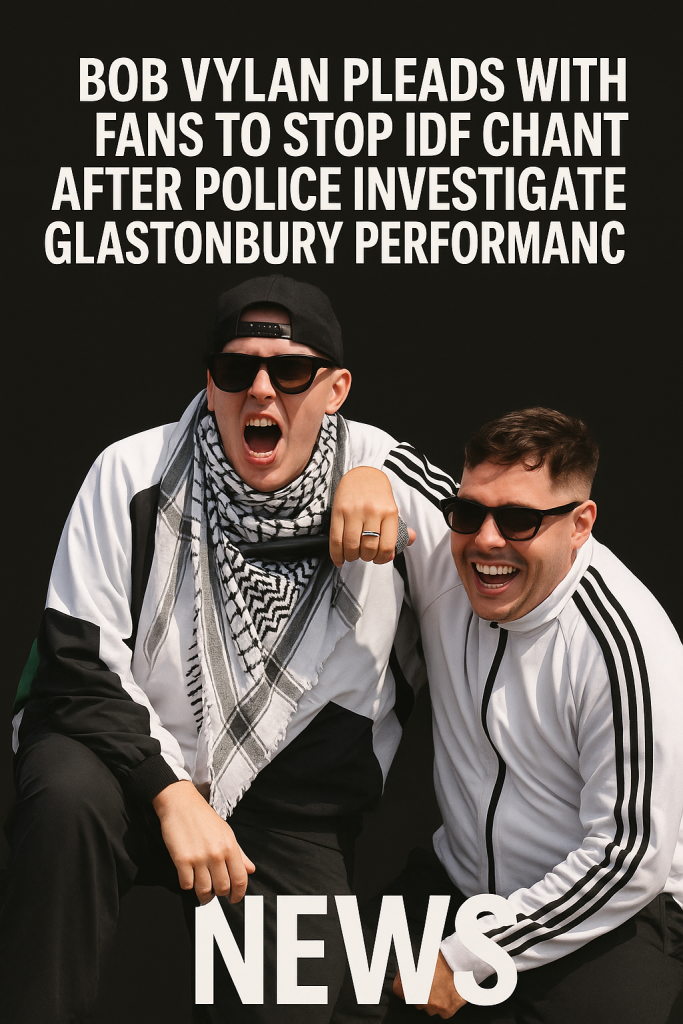British punk duo Bob Vylan has publicly requested that their fans cease chanting “IDF” during live shows following a police investigation into their recent Glastonbury Festival performance. The controversial chant, which critics say references the Israeli Defense Forces, sparked considerable debate and drew law enforcement scrutiny in the aftermath of the band’s energetic set.
During their performance at the iconic UK festival, Bob Vylan—a band known for their politically charged music and activist ethos—engaged the crowd with calls that were interpreted by some attendees as chants referencing the IDF. The chant quickly went viral on social media platforms, fueling polarized discussions online regarding its intent and impact. This attention prompted a review by police authorities who launched an investigation to assess whether the chant could be construed as offensive or inciting.
In response, Bob Vylan released a statement urging fans to discontinue the chant. The band emphasized that their music aims to challenge injustice and promote awareness rather than fuel division. They expressed regret that the chant had become a flashpoint of controversy, stressing the importance of focusing on their broader message of anti-racism and equality rather than divisive slogans.
“We want to make it clear that our intention has always been to highlight systemic oppression and support marginalized communities,” the statement read. “While the energy and passion of our fans is what drives us, we ask everyone to respect this request and refrain from using the chant in future shows.”
The incident highlights the complex terrain musicians navigate when addressing geopolitically sensitive subjects in their work. Bob Vylan’s music often confronts police brutality, racial injustice, and political conflicts, and their raw lyrical style resonates strongly with a youth audience fueled by activism. However, the IDF chant controversy underscores how artistic expression can become entangled with broader political sensitivities.
Police officials declined to comment extensively on the ongoing investigation but confirmed that inquiries remain open to determine if any public order offenses occurred. Meanwhile, festival organizers expressed support for free expression yet reaffirmed their commitment to maintaining a safe and respectful environment for attendees.
Fans and commentators have since debated the incident online, with some defending Bob Vylan’s right to freedom of speech and political protest, while others criticized the chant as inflammatory in the context of ongoing global tensions. The controversy has sparked broader conversations about how music intersects with activism and the responsibilities artists bear in handling contentious issues.
As Bob Vylan prepares for upcoming tour dates, the band has pledged to continue using their platform to spotlight social issues while fostering dialogue that encourages unity rather than discord. Their plea to end the chant illustrates an effort to balance passionate political expression with sensitivity to audience impact and public perception.
In an era when artists wield significant influence on cultural discourse, the Bob Vylan Glastonbury episode serves as a potent reminder of the power and complexity inherent in art-driven activism. The unfolding investigation and its aftermath remain a closely watched story in the music and social justice communities alike.



